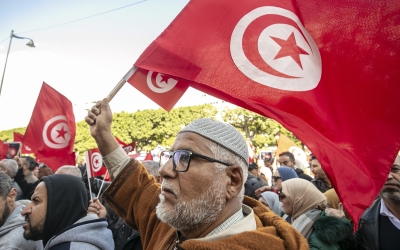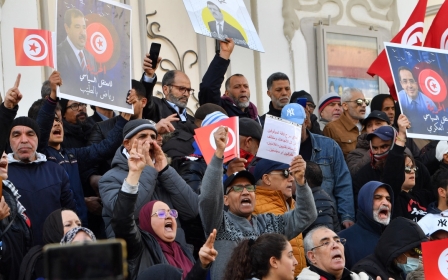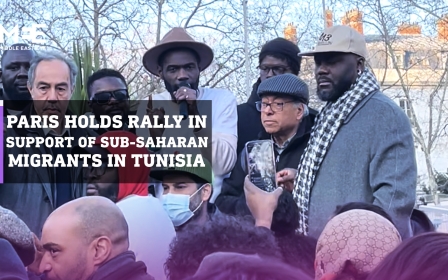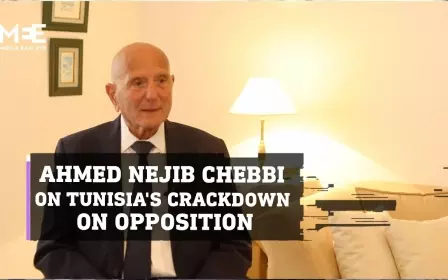Tunisia downgraded to 'repressed' state amid crackdown on civil society
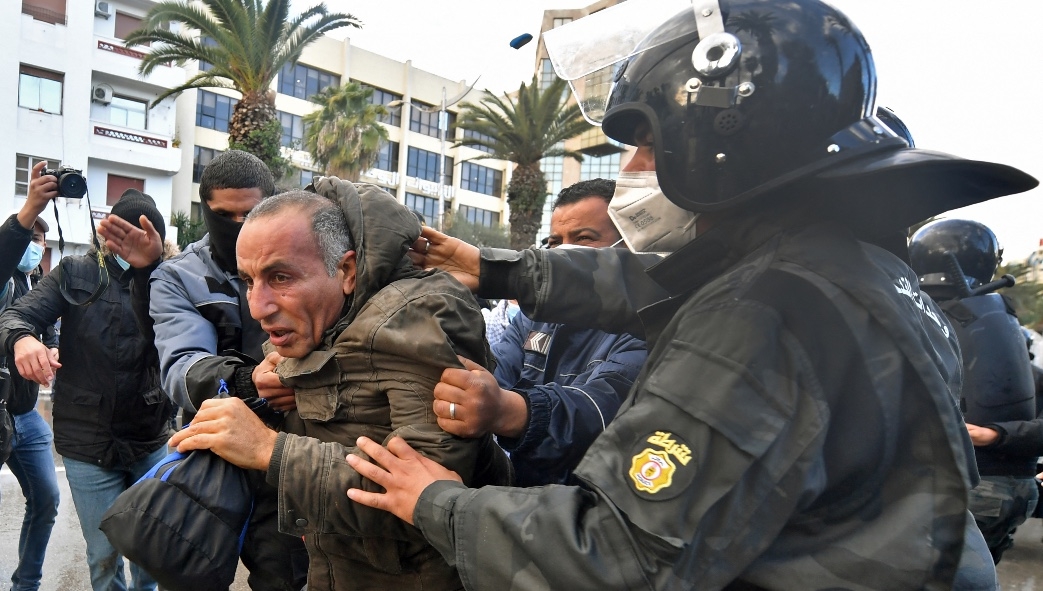
Tunisia has been downgraded to "a repressed" state due to a rapid decline in civic space in the country, with the rights to peaceful assembly, expression, and association significantly threatened.
CIVICUS Monitor, which analyses the situation for civil society and civic freedoms across 197 countries, downgraded Tunisia's rating from "obstructed" to “repressed" in its latest March report.
Tunisia has been engulfed in political and economic crises since July 2021, when President Kais Saied unilaterally suspended parliament and dissolved the government, in what many have called a "constitutional coup" that reversed many of Tunisia’s democratic gains since the 2011 Arab Spring.
He subsequently ruled by decree, before pushing through a new constitution that enshrined his one-man rule.
Saied has since pursued a crackdown on opponents. In February 2023, police raided the home of Noureddine Bhiri, a senior official in the largest opposition party Ennahdha, and arrested him. Activists, lawyers and journalists have also been targeted.
New MEE newsletter: Jerusalem Dispatch
Sign up to get the latest insights and analysis on Israel-Palestine, alongside Turkey Unpacked and other MEE newsletters
“Freedom of expression and the press are seriously under attack, following the arrests of several journalists and the passing of a new decree which seeks to muzzle free expression,” CIVICUS said.
'Down with police state'
Saied courted new controversy with a speech last month that was widely denounced as racist, when he claimed a “criminal plan” was in place to change the demographic structure of Tunisia by settling immigrants from sub-Saharan Africa in the country.
The World Bank subsequently suspended its work with Tunisia after African migrants were attacked. The US weighed in as well, saying it was “deeply concerned” by Saied’s comments.
Saied has also become more bellicose with western officials. Last month, he ordered the expulsion of Esther Lynch, Europe's top trade union official, over a speech his office called "blatant interference" in the country's internal affairs.
Last year, Tunisia held parliamentary elections that rights groups and Saied’s political opponents widely labelled a sham.
Just 11 percent of eligible voters cast ballots in an election marked by widespread apathy and where political parties were banned from participating.
In addition to political turmoil, the North African country is sinking deeper into an economic crisis, with Tunis unable to secure a much-needed IMF loan agreement.
In recent weeks, Tunisians have defied a ban on protesting to take to the streets in opposition to Saied's power grab.
A common refrain among protesters has been: "Freedom, freedom, down with the police state,” and they have also called for a "halt to impoverishment" in the country.
Middle East Eye delivers independent and unrivalled coverage and analysis of the Middle East, North Africa and beyond. To learn more about republishing this content and the associated fees, please fill out this form. More about MEE can be found here.


